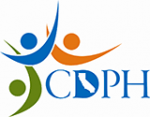Overview
Position Overview
The Illinois Department of Public Health is seeking a highly motivated individual to conduct inspections, investigations and surveys of Home Nursing and Placement Agencies and Home Services and Placement Agencies for the Division of Health Care Facilities and Programs to ensure compliance with the new state licensure rules and requirements “77 Illinois Administrative Code, Part 245 Home Health, Home Nursing and Home Services Agencies”.
Job Responsibilities
- Travels and conducts surveys of Home Nursing and Placement Agencies, Home Services and Placement Agencies and other related services a required to determine the level of compliance with State Licensure rules and requirements. Prepares licensure reports as required to document survey findings. Inspects Home Nursing and Placement Agencies and Home Services and Placement Agencies for initial licensure to determine compliance with State licensure rules and regulations prior to acceptance and issuance of state license. Serves as a team leader or member as assigned.
- Prepares licensure survey forms, memoranda and reports of findings as required. Reviews contents of reports and significance of survey with various operating and management personnel of the agency. Keeps supervisor advised of the status and progress of survey documents. Submits survey package with all required documentation within prescribed time frame.
- Investigate complaints as assigned. Prepares reports of complaint findings under direction of the Supervisor. Informs operating personnel concerning findings. Assists in resolving complaints as appropriate.
- Conducts and participates in on-site visits, pre-planning, entrance and exit conferences. Provides information regarding state licensure and recertification standards, rules and regulations, policies and procedures. Maintains up-to-date Home Health State Licensure Rules and Regulations book for use in survey work, documentation requirements and consultations. Maintains up-to-date licensure laws, rules and regulations and policy documents for use in State Licensure surveys. Utilizes on-line resources for up-to-date forms and administrative rule references.
- Participates in staff meetings, training sessions, seminars and workshops designed for improvement in survey process and performance. Participates in the review and evaluations of reports of surveys done by other Division staff to determine problem areas which may include the need of a survey or visit. Compiles information for hearings of court proceedings. Provides testimony during hearings or court proceedings as required.
- Provides assistance in relocation of patients or other activities in emergency situations.
- Performs other duties as required or assigned which are reasonably within the scope of the duties enumerated above.
About Illinois Department Public Health
In Illinois, if you have eaten at a restaurant ... required hospital or nursing home care ... vacationed at a campground or swam at a public beach or pool ... drank a glass of milk ... got married or divorced ... had a baby, the Illinois Department of Public Health (IDPH) has touched your life in some important way.
Assuring the quality of our food, setting the standards for hospital and nursing home care, checking the safety of recreation areas, overseeing the inspection of milk producing farms and processing plants, maintaining the state's vital records and screening newborns for genetic diseases are just some of the duties of IDPH.
In fact, IDPH has 200 different programs that benefit each state resident and visitor, although its daily activities of maintaining the public's health are rarely noticed unless a breakdown in the system occurs. With the assistance of local public health agencies, these essential programs and services make up Illinois' public health system, a system that forms a frontline defense against disease through preventive measures and education. Public health has provided the foundation for remarkable gains in saving lives and reducing suffering. Today, life expectancy is 80 years for women and 74 years for men compared with fewer than 50 years at the at the beginning of the 20th century.
In the past, IDPH directed state efforts to control smallpox, cholera and typhoid, virtually eliminated polio, reduced dental decay through fluoridation of community water supplies, and corrected sanitary conditions that threatened water and food supplies.
Today, IDPH has programs to deal with persistent problems that require continued vigilance – infectious diseases, such as AIDS (acquired immunodeficiency syndrome), HIV (human immunodeficiency virus), SARS (severe acute respiratory syndrome) and meningococcal disease; foodborne and communicable diseases, such as E. coli 0157: H7, monkeypox, salmonella and West Nile virus; vaccine preventable diseases; lead poisoning; lack of health care in rural areas; health disparities among racial groups, breast, cervical and prostate cancer; Alzheimer's disease; and other health threats -- sexually transmitted diseases, tobacco use, violence, and other conditions associated with high-risk behaviors. In addition, IDPH has been charged with handling the state's response to the COVID-19 pandemic and the threat of bioterrorism.
IDPH, which is one of the state's oldest agencies, was first organized in 1877 with a staff of three and a two-year budget of $5,000. IDPH, now has an annual budget of $2.9 billion in state and federal funds, headquarters in Springfield and Chicago, seven regional offices located around the state, three laboratories, and 1,200 employees.
IDPH is organized into 12 offices, each of which addresses a distinct area of public health. Each office operates and supports numerous ongoing programs and is prepared to respond to extraordinary situations as they arise.



